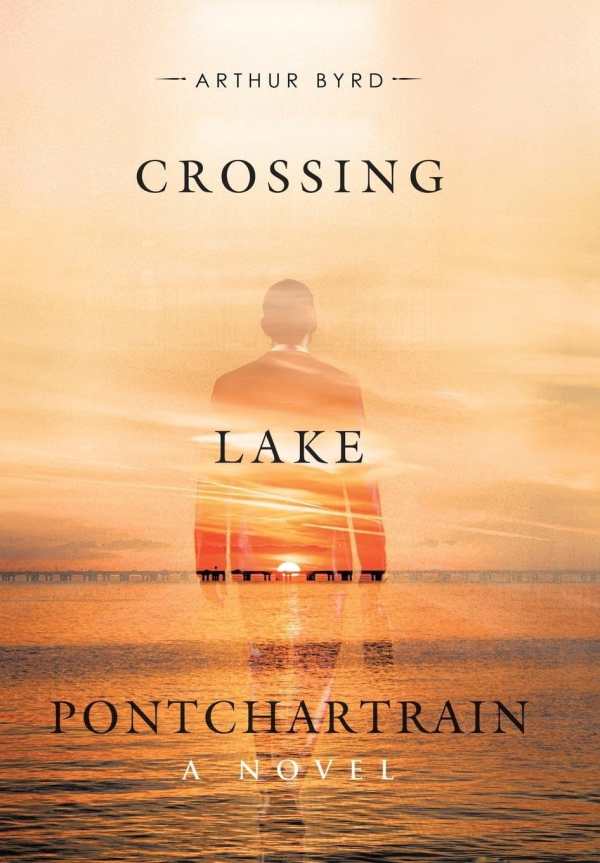Crossing Lake Pontchartrain
The unknown and serendipity get the last word in the tragicomic novel Crossing Lake Pontchartrain, about a writer’s midlife crisis.
In Arthur Byrd’s heartfelt novel Crossing Lake Pontchartrain, a man pursues artistic liberation after his divorce.
Larry’s father disappeared when Larry was in college, so he set aside his studies to support his mother. A dose of magical realism is involved in the book’s theories about his father’s absence. Soon after, Larry also had a wife and a child to care for. Later, when his wife leaves him, Larry reacts by getting a new job and drinking.
Larry’s new job takes him to New Orleans; the city’s post–Hurricane Katrina recovery consumes the story’s background. Here, it is a place bustling with artists at work; studios and galleries flesh it out. Indeed, Larry is introduced to a network of artists and new friends in New Orleans who convince him not to abandon himself and encourage him to write again. He makes friends at eating establishments, too, and seeks out a psychic. He starts a new relationship with a waitress and yoga teacher, making but correcting mistakes early on. And when he’s fired, Larry decides to follow his new community’s advice. He sets a new artistic endeavor in motion, beginning a novel that’s informed by the people around him—and their wisdom, as with the adage “chop wood, carry water.”
This story about a man facing a midlife crisis is a layered one. It takes a forward-facing, chronological approach to Larry’s troubles; its flashbacks are rare. This progression mirrors how Larry meets new opportunities as they come. The chapters toggle between his social engagements and conversations, enlivened by his perceptions of people, places, and art. He is challenged by Black and Chinese laborers who call out his white privilege—even as they engage him on artistic and spiritual levels and over food, beers, and work.
The book’s emphasis on work also makes its progression arduous, however. Larry has arguments with others that result in guilt; he has inebriated conversations and worries aloud about why he drinks. Momentum is replaced by his self-indulgence. Even the criticisms and advice that his friends dispense to him function only to build up his character. Because most people are rendered mere vehicles for Larry’s healing in the process, the story becomes overwrought—until its more inclusive ending, wherein everyone’s talents have to be involved, and in which the story circles back to an underlying mystery regarding Larry’s father.
In the second-chance novel Crossing Lake Pontchartrain, a divorced man finds that healing is a discipline.
Reviewed by
Mari Carlson
Disclosure: This article is not an endorsement, but a review. The publisher of this book provided free copies of the book and paid a small fee to have their book reviewed by a professional reviewer. Foreword Reviews and Clarion Reviews make no guarantee that the publisher will receive a positive review. Foreword Magazine, Inc. is disclosing this in accordance with the Federal Trade Commission’s 16 CFR, Part 255.

